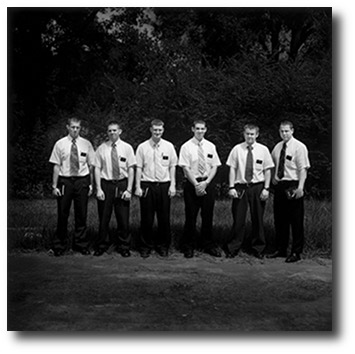One day, in second grade, I came home from school with a form that I was supposed to return the next day, with my choice of foreign languages filled in. I was asked to rank the languages in order of preference, and with luck, my number one choice would be the one I’d start studying the next fall.
Coca-Cola had come to Finland with the Summer Olympics in 1952, and by the time I was about to make that language choice, that faraway Nordic country had fallen in love with Rodney in “Peyton Place”, and Ben Cartwright in “Bonanza”.
Then the 50s America was cool, and “Happy Days” was cool. While Fonzie was the coolest of cool, even Ralph Malph had something I really wanted. A cool high school jacket.

My mother was the family’s language wizard. She spoke English, German, French, Swedish, all of them pretty fluently at one time. Dad didn’t speak many words of English, and his older brothers were of the generation who spoke German.
We agreed that English was probably the smartest choice for me, so my order of languages looked like this: 1. English, 2. Swedish, 3. German, 4. French.
I returned the form to my teacher, and life went on as usual. Some of my friends picked Swedish from third grade, and they became my ex-schoolmates.
Around the same time, Dad also enrolled in night school to study English. We’d drive around in our car, and Mom would speak some English with me, with Dad listening in, but not saying anything. He must have passed his first tests, though, because I remember there being two different kinds of books: one with a red cover, and some time later, a similar one with a blue cover. But never a third one.
The first thing we did in English class was pick English names. There was a long list of names that we could look to see if we saw anything we liked. Everybody wanted to be Steve, because that was the name of the Six Million Dollar Man. Steve Austin.
Steve wasn’t on the list, but one lucky guy got to be Steven. Good enough.
I chose “Richard” because it sounded kind of like my own name, and also because we had a dog called Riku, and Mom and Dad sometimes called him Rikhard.
“Rikhard,” I told the teacher, embarrased to do the “ch” sound, because none of my friends had used any fancy pronunciations, either.
“Risto, the name is Richard. You can’t have it until you can pronounce it correctly,” she said.
“Richard,” I said.
“So Richard it is,” she said.
And Richard it was.
Then came Dallas and Dynasty, and the Thorn Birds, and Shogun and possibly a third Richard Chamberlain show, and the Hill Street Blues, the Muppet Show, and Columbo. All of them subtitled, as is the Finnish way, which is great for kids trying to learn English. There was also rock and roll, and there were language courses in England, but there was always a need for more English.
America was so cool, and native English speakers so rare in Finland, that all such people were welcomed to classrooms with open arms.
For example, mormons.
One day in eight grade, two young Americans, wearing suits and ties, walked into our classroom. They were there to bring us a taste of America – and to speak American English.
“Hi, everybody,” they said, and then told us that they thought it’d be a fun idea if they’d teach us some American idioms and slang words.
“Not sure if you learn slang at school,” said one.
They also said they’d be happy to answer any questions we had in mind, any time.
They were all smiles and full of energy as they took turns in writing words and idioms on the blackboard.
“Does anybody know what this means?” asked one of them and pointed towards the blackboard.
KICK THE BUCKET
It was quiet in the classroom for a while, then one guy raised his arm, and without waiting for a permission to speak, just yelled, “die!”
“That’s right. Kicking the bucket means that somebody has died. When somebody dies, the last thing they do is kick the bucket, or something like that,” they said, and moved on.
After a few similar exercises, they told us that a simple and popular way to use the word “man” to make the sentence a little more powerful.
“You know, ‘man, I was tired last night,” said one of them.
“Or, ’man, you’re good’,” added the other.
“Or, if something unfortunate happens, you can just say, ‘oh, man,” said the first one again.
“Oh, man,” said the other. “Oh, maaaaaaaaaaaaaan.”
Then it was time for questions. A classroom full of Finnish teenagers is as tough a crowd as they get, and after a long silence, the teacher coughed a little and then said:
“Have you been abroad before?”
“No, I’ve always been a man,” said one of the two young men in a suits.
We all looked at each other, and said nothing. They looked at each other, and started to laugh. We all sat there silently, looking at them, when one of them apologized to the teacher.
“I’m sorry, I thought you asked me if I had been a broad before. You know, ‘a broad’,” he said, and wrote the word on the blackboard.
“A broad also means woman in American so I thought you asked me if I’d ever been a woman. The answer is no,” he told the class, smiling.
Our teacher looked like she was going to kick the bucket. Oh, man.
